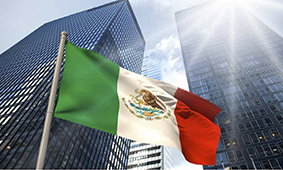
Fuel retailers to invest $750mn in Mexico in 2020

Permitting backlogs and political uncertainty already stalled development of completely new stations this year. Mexico has a relatively low ratio of stations to drivers, and 175 of its 2,750 municipal districts have no retail stations at all.
Ideally greenfield stations could be developed in these underserved areas, Onexpo president Roberto Diaz de Leon said at an association meeting in San Miguel de Allende, Mexico.
But "investments that are halted and delayed by permitting are troubling," Diaz de Leon said. "We have scary stories of retailers who have made important investments in new tank trucks to make their operations more efficient, and then they cannot move because they do not have permits requested six months ago or more."
Retailers are also planning spending in security and training, he said.
Some of these investments are less optional as regulations set to come into force on 1 January will require that all retail fuel stations issue government-certified software and advanced electronic receipts.
Yet some of these requirement are onerous, and will be particularly difficult for retail stations in more remote areas with poor internet access, Diaz de Leon said.
"We will now have to give iPads to most of our dispatchers so we can meet the new regulations," Diaz de Leon said.
He added that the association will continue to talk with government entities including the energy regulatory commission (CRE) and the energy ministry (Sener) about how retailers can meet these regulations and how to expedite permit requests. The government recently proposed easing minimum fuel storage requirements to take effect next year, which the retail sector had said would be costly.
By Sergio Meana


Trump weighs using $2 billion in CHIPS Act funding for critical minerals

Codelco cuts 2025 copper forecast after El Teniente mine collapse

Electra converts debt, launches $30M raise to jumpstart stalled cobalt refinery

Barrick’s Reko Diq in line for $410M ADB backing

Abcourt readies Sleeping Giant mill to pour first gold since 2014

Nevada army depot to serve as base for first US strategic minerals stockpile

SQM boosts lithium supply plans as prices flick higher

Viridis unveils 200Mt initial reserve for Brazil rare earth project

Tailings could meet much of US critical mineral demand – study

Kyrgyzstan kicks off underground gold mining at Kumtor

Kyrgyzstan kicks off underground gold mining at Kumtor

KoBold Metals granted lithium exploration rights in Congo

Freeport Indonesia to wrap up Gresik plant repairs by early September

Energy Fuels soars on Vulcan Elements partnership

Northern Dynasty sticks to proposal in battle to lift Pebble mine veto

Giustra-backed mining firm teams up with informal miners in Colombia

Critical Metals signs agreement to supply rare earth to US government-funded facility

China extends rare earth controls to imported material

Galan Lithium proceeds with $13M financing for Argentina project

Kyrgyzstan kicks off underground gold mining at Kumtor

Freeport Indonesia to wrap up Gresik plant repairs by early September

Energy Fuels soars on Vulcan Elements partnership

Northern Dynasty sticks to proposal in battle to lift Pebble mine veto

Giustra-backed mining firm teams up with informal miners in Colombia

Critical Metals signs agreement to supply rare earth to US government-funded facility

China extends rare earth controls to imported material

Galan Lithium proceeds with $13M financing for Argentina project

Silver price touches $39 as market weighs rate cut outlook

















